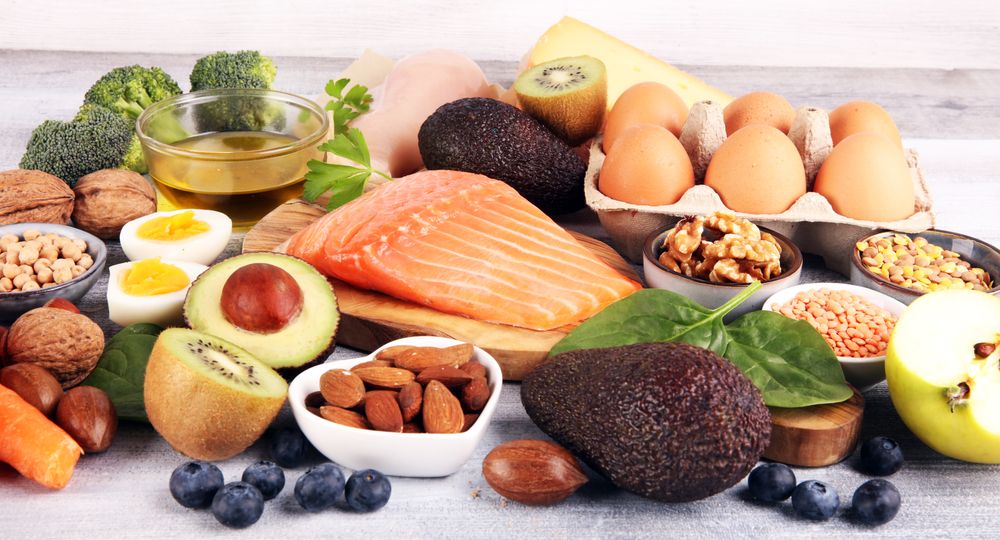High-quality protein has always been a crucial nutrient to focus a well balanced diet on. Protein plays a key role in muscle repair, hormone production, and immune function. As consumers become more conscious of their nutritional choices, they seek affordable yet nutritious protein sources. Fortunately, there are cost-effective options that deliver excellent nutritional value without compromising quality.
Eggs
Eggs are a versatile and budget-friendly powerhouse of nutrition. Packed with essential amino acids, vitamins, and minerals, eggs provide the perfect blend of nutrients to support a host of bodily functions. Known for their high biological value and digestibility, eggs contain all nine essential amino acids necessary for optimal protein synthesis. At about only a few cents per egg, they remain a top choice for affordable protein.
Incorporating eggs into your diet is simple, given their versatility. They can be scrambled, boiled, poached, or used in omelets, frittatas, and even savory bread puddings. They pair well with vegetables for added nutritional benefit, making them a perfect candidate for a balanced meal.
Lentils
As a staple in vegetarian diets, lentils are a benchmark for affordability and nutritional value. With more than 18 grams of protein per cooked cup, they serve as an excellent plant-based protein source. Besides protein, lentils are abundant in fiber, iron, and folate, addressing various nutritional needs at once.
Purchasing dried lentils in bulk further reduces cost and extends shelf life. Cooking lentils is straightforward: they can be boiled and then added to salads, soups, stews, and curries to enhance their protein profile. Their versatility allows them to absorb flavors effectively, making them a suitable ingredient for an array of dishes.
Greek Yogurt
Greek yogurt offers a creamy and satisfying protein alternative, laden with beneficial probiotics for gut health. Typically offering double the protein of regular yogurt, a single serving can deliver upwards of 10 grams of protein or more, depending on the brand and fat content.
Greek yogurt makes a quick and easy snack, or it can be incorporated into smoothies, parfaits, and dressings to enrich meals. Purchasing large containers and portioning them into individual servings can save costs, and choosing plain varieties allows for control over added sugars.
Canned Tuna
Canned tuna is often regarded as a convenient and inexpensive protein-packed food. Rich in omega-3 fatty acids, it supports cardiovascular health alongside its protein benefits. With around 20 grams of protein per three-ounce serving, canned tuna makes for an impressive protein choice.
For adding variety to your meals, consider using canned tuna in sandwiches, salads, or pastas. Accompanying it with vegetables, whole grains, and herbs can enhance both flavor and nutritional content. Opting for tuna packed in water rather than oil can limit calorie intake and keep it a lighter option.
Peanut Butter
Peanut butter serves as an accessible and delightful source of protein. Offering about 8 grams of protein per two-tablespoon serving, its affordability and taste make it a pantry staple for many households. It also provides healthy fats and vitamin E, contributing to satiety and overall nutrition.
Peanut butter works well on whole-grain bread, in smoothies, or as a dip for fruits and vegetables. When choosing peanut butter, opt for brands with minimal added sugars and oils for a healthier choice. Bulk buying or making your own can add further savings.
Chicken Breast
While some meats can be cost-prohibitive, chicken breast often provides a cost-effective option for high-quality animal protein. Skinless, boneless chicken breast is lean and contains all essential amino acids, making it a comprehensive protein source.
Sales and bulk purchases can reduce the expense of chicken breast. Baked, grilled, or roasted chicken can serve as a main course, with leftovers repurposed in salads, sandwiches, and stir-fries. Combining chicken with seasonal vegetables and whole grains helps balance meals while stretching the protein further.
Chickpeas
Chickpeas, also known as garbanzo beans, are another plant-based protein choice celebrated for their versatility and affordability. Containing about 15 grams of protein per cooked cup, chickpeas are rich in fiber, manganese, and other nutrients beneficial to overall health.
Affordable and shelf-stable, chickpeas can be cooked in batches and used throughout the week in salads, soups, and curries, or transformed into hummus and falafel. Their adaptability in dishes worldwide reflects their broad appeal and utility in a frugal diet.
Tofu
Tofu, a staple in many vegetarian and vegan diets, serves as an inexpensive and flexible source of high-quality protein. Derived from soybeans, it offers around 10 grams of protein per half-cup serving, alongside calcium and iron.
Firm and extra-firm tofu holds up well in stir-fries, grilling, and baking. Soft or silken tofu provides a creamy base for smoothies, desserts, and sauces. While block tofu is often more economical than pre-flavored or processed tofu products, marinating it in various spices and herbs can impart a rich taste.
Quinoa
Often considered a superfood, quinoa boasts a complete amino acid profile, providing approximately 8 grams of protein per cooked cup. Though pricier than some grains, its dense nutritional content—rich in fiber, magnesium, and antioxidants—enhances its value as an investment for a well-rounded diet.
Quinoa’s mild, nutty flavor complements both sweet and savory dishes, making it a versatile base for salads, bowls, and breakfast porridge. Buying in bulk and rinsing thoroughly before cooking can yield better flavors and textures.
Cottage Cheese
Cottage cheese is another excellent protein source, particularly popular among fitness enthusiasts due to its high casein content, which digests slowly and supports muscle growth. Containing about 25 grams of protein per cup, its affordability per serving makes it especially attractive.
Plain cottage cheese pairs well with fruits, nuts, and honey for a quick snack or breakfast. Savory options include using it in salads, lasagnas, or as a topping for baked potatoes to enrich the meal’s nutritional profile.
Sardines
Sardines, often overlooked, are a nutrient-dense fish consumed fresh or canned, with a wealth of protein and omega-3 fatty acids. In canned form, they are remarkably cost-effective compared to fresh seafood, with the added benefits of calcium and vitamin D from their edible bones.
They lend themselves to quick and nutritious meals, whether served on toast, incorporated into salads, or cooked into sauces. For conscious consumers, seeking out sustainably sourced options adds an environmental benefit to this affordable choice.
Oats
Oats may not conventionally be considered a protein powerhouse, yet they offer about 6 grams per cooked cup, which, combined with their ease of access and low cost, makes them deserving of mention. Additionally, oatmeal’s soluble fiber content aids in cholesterol management and offers a satisfying start to the day.
Oats can be revived with fruits, nuts, and spices for a nutritious breakfast or used in baking and homemade energy bars. Bulk purchasing is economical, particularly in their raw form, which can be enhanced with simple ingredients for a nutritious meal.



